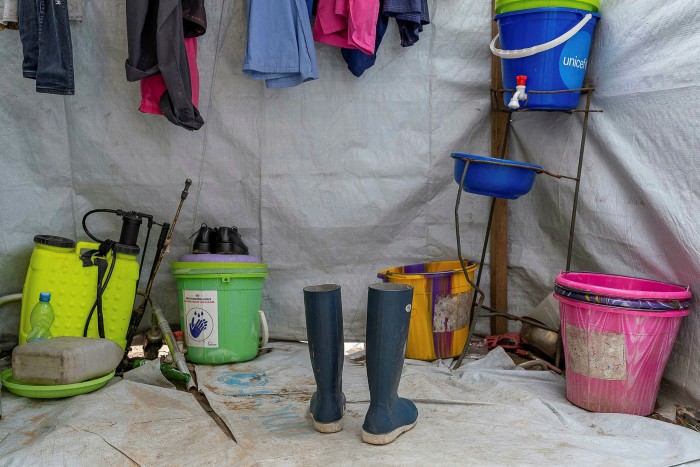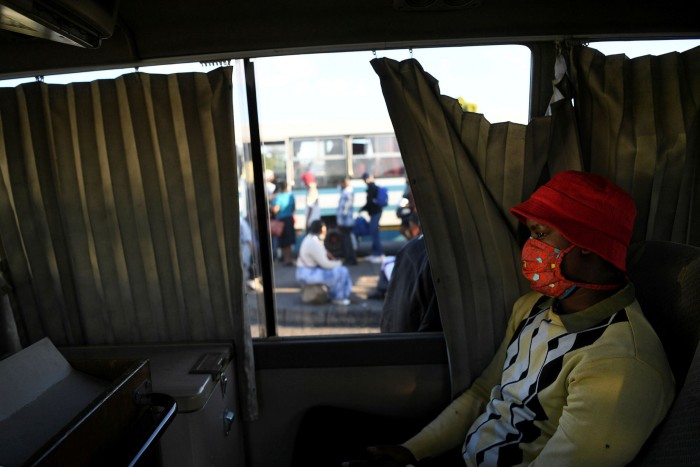A G7 pledge of 1bn coronavirus jabs for poorer countries to help inoculate the world has drawn fire from campaigners for failing to bridge the vast global divide in supplies of the life-saving vaccines.
The initiative by the club of rich democracies meeting in the UK this weekend looks too small, too slow and too narrow to meet its target date of the end of next year, according to advocates for greater international access to vaccines.
The G7 commitment was too small a part of the estimated 2.5bn excess shots the group’s governments had already acquired beyond their domestic needs, said Professor Suerie Moon, co-director of the global health centre at the Geneva-based Graduate Institute of International and Development Studies.
“While a 1bn-dose donation shows that leaders have finally stopped dithering, its less than half of what these countries could and should commit today,” said Moon, who also pointed to the “poor record for follow-up” on G7 summit deals.
“A more reliable strategy would be to urgently scale up and diversify production, through technology transfer and clearing intellectual property barriers,” she added.
The plan from the G7 — which comprises the US, UK, Japan, France, Germany, Italy and Canada — includes 500m doses from Washington and 100m from London. The EU has separately pledged 100m shots to African countries and poor nations in other parts of the world by the end of the year.

The initiative is intended in part to counter criticism that western governments have hoovered up most of the initial Covid-19 vaccine supplies to inoculate their own people.
“We’re going to help lead the world out of this pandemic working alongside our global partners,” US president Joe Biden said on Friday, at the start of the three-day G7 summit in Cornwall.
Biden added that shipment of the US-manufactured doses would start in August, with the aim of distributing 200m by the end of the year.
The World Health Organization said it welcomed “all commitments and contributions” to reach its target of inoculating at least 10 per cent of the population of every country by September and 30 per cent by December.
However, the global health body faces an uphill task to achieve those goals after Covax, the international vaccine distribution scheme it backs, was hit by a suspension of exports from India, where many of its ordered vaccines are being produced.
The WHO urged the G7 countries and others to “step forward and share doses immediately” to help close the Covax supply gap.
“We need game-changing leadership from each and every member of the G7,” it said, adding that there was also an urgent need for more money for coronavirus treatments, tests and health systems. “We cannot solve this dire pandemic with vaccines alone.”
The successful vaccination drives in many western countries this year have laid bare stark inequalities in global vaccine distribution. Immunisations in many lower-income nations have barely begun.
While the UK has administered 103.7 doses per 100 people, Nigeria — Africa’s most populous nation — has given just 1.1, according to data gathered by the Financial Times.
Africa “could be in a full-blown crisis” of a third pandemic wave by the time the G7 vaccines arrived because of big rises in infections in countries including Democratic Republic of Congo, Botswana and Zambia, said Ayoade Alakija, co-chair of the Africa Vaccine Delivery Alliance.

Alakija, whose organisation co-ordinates distribution on the continent, said the US promise of BioNTech/Pfizer jabs was a “generous” donation of “what they consider to be the best vaccine” — but was also still “not enough”.
The Pfizer vaccine has been shown to have among the highest efficacy in clinical trials and is thought to be more effective against Covid variants and causes fewer serious side-effects than some other jabs.
Officials in rich countries privately acknowledge the need to avoid the perception that they are offloading unwanted “second-class” vaccines on poorer nations.
Asked about the UK promise, which has not offered a specific brand but simply said it will give “surplus vaccine doses”, Alakija said: “Some people are donating leftovers, some people are giving their best.”
A further concern about the G7 initiative relates to the difficulties in administering vaccines in countries with underfunded health services, inadequate refrigeration storage facilities or poor transport infrastructure.
“The G7 will fail if there is no clear road map about how you move the vaccine from the manufacturer to someone’s arm,” said Thoko Elphick-Pooley, director of Uniting to Combat Neglected Tropical Diseases, which works in hard-to-reach places. “A vaccine doesn’t deliver itself, it needs people and a health system.”


